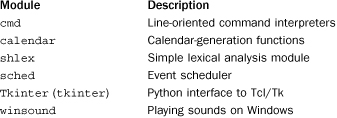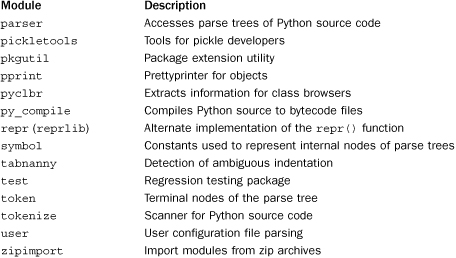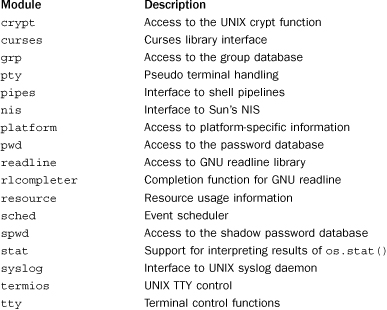25. Miscellaneous Library Modules
The modules listed in this section are not covered in detail in this book but are still considered to be part of the standard library. These modules have mostly been omitted from previous chapters because they are either extremely low-level and of limited use, restricted to very specific platforms, obsolete, or so complicated that coverage would require a complete book on the topic. Although these modules are have been omitted from this book, online documentation is available for each module at http://docs.python.org/library/modname. An index of all modules is also available at http://docs.python.org/library/modindex.html.
The modules listed here represent a common subset of functionality between Python 2 and Python 3. If you are using a module that is not listed here, chances are it has been officially deprecated. Some modules have changed names in Python 3. The new name is shown in parentheses, if applicable.
Python Services
The following modules provide additional services related to the Python language and execution of the Python interpreter. Many of these modules are related to parsing and compilation of Python source code.
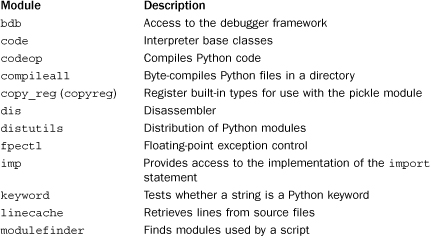
String Processing
The following modules are some older, now obsolete, modules used for string processing.

Operating System Modules
These modules provide additional operating system services. In some cases, the functionality of a module listed here is already incorporated into the functionality of other modules covered in Chapter 19, “Operating System Services.”
Network
The following modules provide support for lesser-used network protocols:
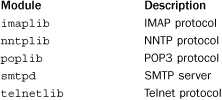
Internet Data Handling
The following modules provide additional support for Internet data processing not covered in Chapter 24, “Internet Data Handling and Encoding.”
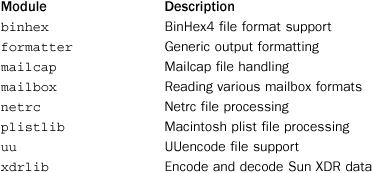
Internationalization
The following modules are used for writing internationalized applications:
![]()
Multimedia Services
The following modules provide support for handling various kinds of multimedia files:
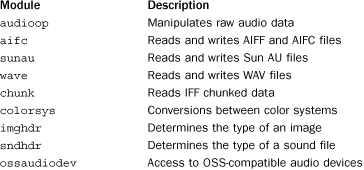
Miscellaneous
The following modules round out the list and don’t really neatly fall into any of the other categories:
